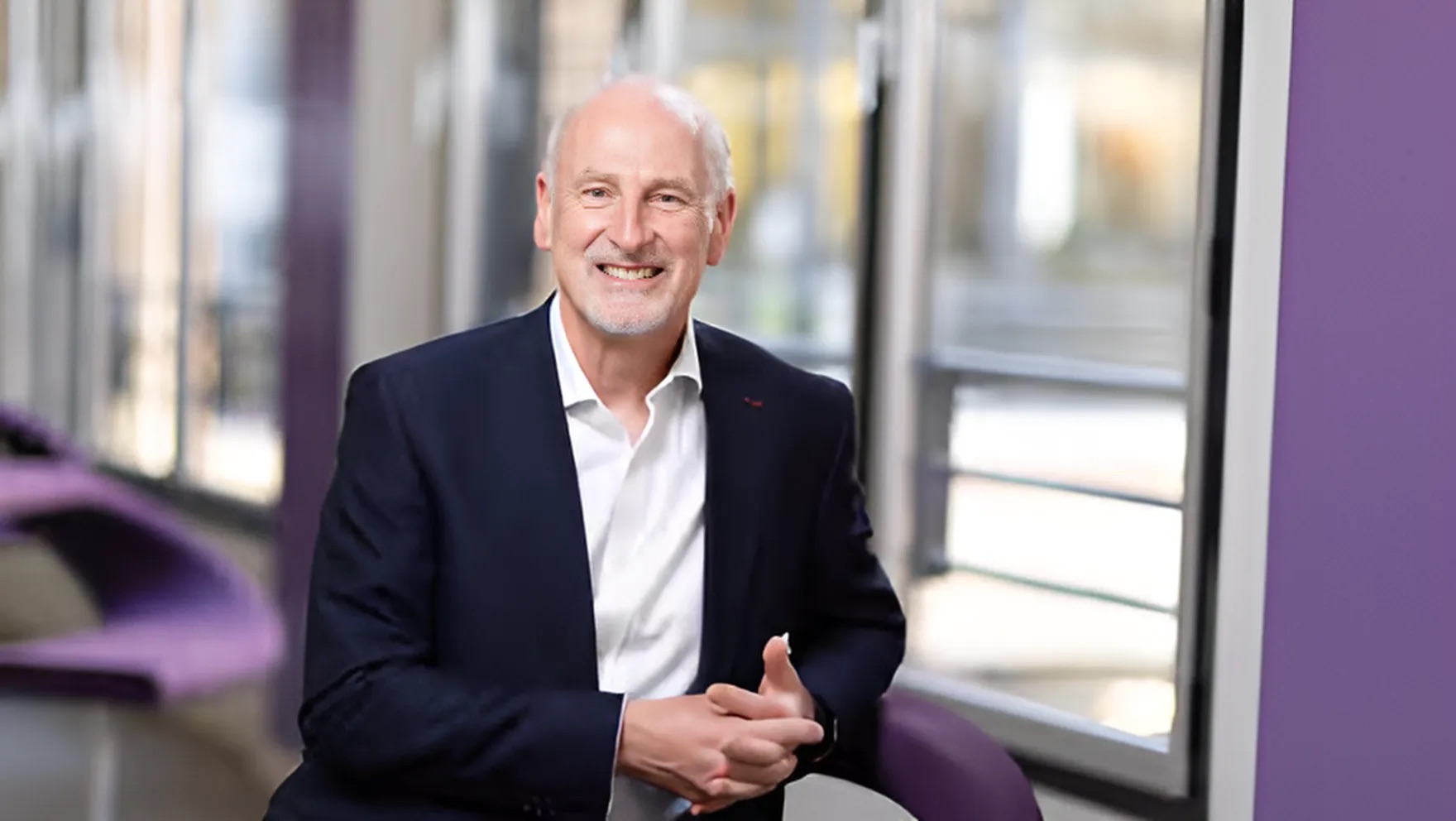- Business Innovation
- Client Stories
- IQ Insigniam Quarterly® Magazine
- The Changing Paradigm for Leadership
Building a Better French Fry
Ask someone on the street how to innovate a potato and you may garner a few blank stares. But if you ask the research and development experts at McCain Foods, you will almost certainly walk away with encyclopedic knowledge and a craving for fresh fries. Conveniently, one in every four fries comes from McCain Foods.
Founded by the McCain brothers in 1957, the company hired 30 employees and grossed over $150,000 in sales during its first year of operations. Now, with over 20,000 employees worldwide and a growing menu of products, the privately owned family company has a sales footprint in over 160 countries and global annual revenues in excess of $11 billion (CAD).
To successfully expand that broadly, a company must be able to identify market gaps and evolve customer preferences at a hyper-efficient level. To that end, Insigniam Quarterly went straight to McCain’s foremost innovation experts—Tom Koziel, VP of R&D, North America Appetizers Division; and Sergio Pollak, VP of R&D, Potatoes, North America and LATAM— to get their insight and perspective on what it takes to cultivate innovation, how leadership within R&D is evolving, and what keeps them up at night.
IQ: McCain Foods has developed a reputation for continuously developing new and improved frozen food products. From an organizational standpoint, why is McCain an ideal environment for innovation to thrive?
Mr. Pollak: I would start by saying that innovation is baked into the DNA of our company, so to speak. McCain was a pioneer in the frozen food business over 65 years ago. Even back then, the company was leading in terms of utilizing new technologies around freezing, distributing, and selling products. I would add that innovation across the industry has accelerated in the last decade, and the playing field is much more competitive. I may sound extreme, but you either innovate or die.
Mr. Koziel: We are also a company that supplies all three major channels in the food industry. We supply products to retail (both own branded and private label), as well as to quick service restaurants, and to the food service industry. That includes big distributors like Sysco and Gordon’s Food Service, as well as national chains. So, in that context, we are continually innovating to better serve our customers. If and when a customer sees a need in their market, or identifies a gap in their portfolio, we have the ability to respond quickly. Many companies are either branded CPG food and they only do their own products or they’re a co-manufacturer. We are uniquely positioned in that we are doing both things.
IQ: In an organization with such an innovative R&D component, what is the relationship with marketing, sales and manufacturing? Can you describe how you ensure that R&D has a ‘seat at the table’, especially when making enterprise-level decisions?
Mr. Pollak: This question carries significant weight for me. Strategically, McCain underwent a significant reorganization a few years ago which resulted in the restructuring of our leadership team. One aspect of this restructuring was aimed at ensuring R&D had a formal presence and influence in the company’s decision-making processes. This was especially welcome because R&D holds a strategic function and without this voice or presence in critical conversations, R&D cannot adequately be represented.
However, it is important to note that this concern is not limited to R&D; we must collaborate daily with colleagues from marketing, manufacturing, operations, and sales, as well as other R&D teams—consisting of food scientists, packaging engineers and others. By doing so, we ensure that R&D is not merely seen as a technical support function, but rather as a valuable business partner and leader. This delineates the crucial distinction between having a strong technical services team and possessing an innovative business partner or leader within the company.
Mr. Koziel: I’ve always felt like R&D is the glue between supply and demand. On the supply side, McCain has teams focused on standardization, efficiency, and operational aspects, while on the demand side, we have folks working hard to envision groundbreaking innovations that have never been seen before. It is our responsibility to discover the optimal balance between these two perspectives.
IQ: Innovations such as oil-less French fries and products that are fresh from a vending machine sound like leading-edge technology. How do consumer insights influence product development and technological advancement?
Mr. Pollak: Fresh fries from a vending machine is exciting, but it’s essential to zoom out and consider the broader concept of convenience. Convenience is a top priority for us, as it revolves around catering to our consumers’ needs. To achieve this, we invest significant effort in innovation, collaborating closely with customers such as the Quick Service Restaurant (QSR) channel. Together, we explore limited-time offerings and menu additions that enhance convenience. In today’s fast-paced world, convenience is key, and vending machines merely exemplify this trend. In Europe, for instance, microwaveable fries are gaining traction among major players, although they may not be as common in the US or North America. Air fryers have gained significant popularity in North America and Brazil, and we are actively engaged in this space.
IQ: Where—and how—do you identify gaps or opportunities in the market for innovation? What about product development?
Mr. Koziel: A couple of years ago, we conducted an extensive analysis focusing on identifying demand spaces. The objective was to explore various eating occasions and pinpoint any gaps in the existing product offerings. Consider your recent experiences at a drive-through….when you purchase a particular product and find yourself on the highway, traveling at 70 miles per hour while attempting to eat it, it becomes crucial that the food is both convenient and enjoyable. Some products meet these criteria admirably, while others fall short. Our aim is to identify situations where multiple products fulfill a need but could be improved upon. This improvement could involve creating a more convenient and flavorful option. In the realm of food, the balance between taste and health is essential, and we take these factors into account when determining our strategic initiatives.

We also assess where McCain can make a meaningful impact based on our capabilities. We focus on consumer dissatisfaction points where they consume products that may not be the most suitable for specific occasions. For example, we examine scenarios such as enjoying food conveniently in the car or selecting the ideal celebratory meal for a birthday party at a restaurant. By mapping these distinct demand spaces, we identify the areas that deserve our prioritization and pursue them accordingly. Our goal is to enhance the overall experience for consumers by offering products that excel in the moments that matter to them.
IQ: Beyond the consumer side, McCain Foods also provides culinary support and expertise to food service operators. Why is this an important investment for the enterprise?
Mr. Koziel: First, I would say that it represents one of our largest channels where we have a solid foothold in the market. Our customer relationships are strong, but we still recognize opportunities to bring something new and innovative to the table.
In my role, I focus extensively on the appetizer side of our business, which includes all the tasty treats like cheese sticks, onion rings, and jalapeno poppers that you’d typically find at a classic bar and grill. It’s clear that there’s a growing demand for vegetable-based options. So we’ve embarked on a mission to create vegetable-based dishes that are not only delicious but also intriguing for the food service industry.
Introducing our new line of products called “V’DGZ,” we’re excited to share our latest creations. One standout item is our CORN R’BZ, which is a corn cob that’s been quartered, battered, and breaded. And it’s meant to be savored like a traditional rib, complete with the cob still intact.
Another addition to our lineup is the CAULI W’NGZ, which is a lighter experience versus most cauliflower wings that are heavily coated with brown breading. We’ve also introduced BRUSS’LZ sprout halves that are enjoyed in a similar manner to popcorn chicken.
It’s important to note that these options aren’t meant to imitate meat or serve as a chicken alternative. Rather, they draw inspiration from the habits and preferences people have when eating out. Just like ordering a basket of chicken nuggets, you can now enjoy a basket of CAULI W’NGZ or BRUSS’LZ.
IQ: Given that R&D plays such a critical strategic role within McCain, what keeps each of you up at night?
Mr. Koziel: One of our constant concerns revolves around responding to supply chain disruptions. Even after the pandemic, we continue to face challenges such as ingredient shortages or suppliers struggling to meet their own demands, subsequently affecting our supplies. In those situations, we must quickly adapt by developing alternative recipes to ensure our production lines can keep running smoothly. While our focus is primarily on innovation and serving our customers, we also need to allocate resources to handle these crises as they arise.
Mr. Pollak: I would also say that it’s a constant challenge to determine what truly constitutes a great innovation. We’ve been contemplating a shift in our approach, moving away from excessive research and testing towards a more market-centric strategy. It’s a challenge we’re currently grappling with. Traditionally, the food industry invested significant time and resources into extensive research before launching a product. Unfortunately, the reality is that a large percentage, around 80 to 90%, of these launched products end up failing in the market. It’s a big hurdle the food industry faces.
That said, we’re exploring different avenues to address this issue. We’re looking for ways to minimize the research-heavy approach and instead focus on real-life market testing. This change in mindset poses its own set of challenges, but we believe it holds promise. By taking a more hands-on approach and gathering insights directly from the market, we hope to improve our success rate and deliver products that truly resonate with consumers. It’s an ongoing journey, and we’re actively working on finding the right path forward.
IQ: Where have you seen the paradigm for R&D leadership shift in the past few years—and has your own paradigm evolved as well?
Mr. Pollak: There has been quite an evolution in leadership over the years. When I first started working in the food industry almost 30 years ago, the plant manager or director would be the person who started on the shop floor. They had extensive knowledge of every small spare part in the factory. As the most experienced individual, they made top-down decisions and drove the direction of the team.
But a significant shift has occurred in recent decades. It’s no longer about one person’s expertise, but rather about embracing diversity and fresh perspectives. Leadership is now a collective effort, where a team collaborates, thinks together, and finds innovative solutions to the challenges we face on a daily basis. This shift is an essential part of the historical evolution of leadership.

Another significant lesson I learned, thanks to my exposure to different countries and cultures like Argentina, Brazil, Mexico, France, and the US, is the importance of authenticity. Some people try to imitate the culture they are immersed in, claiming to be French when only working in France or Brazilian when working in Brazil. But authenticity is crucial. It’s essential to stay true to your essence while being flexible enough to communicate and work effectively. Remaining humble and open to learning from diverse cultures is also key.
Mr. Koziel: That’s an excellent question, and I believe it’s not just a cliché when I say that it’s always about putting people first. Throughout my career, I’ve come to realize the significance of this principle. Maybe
it’s a combination of both changes in the industry and personal growth over the past 20 years. In the past, the focus was primarily on achieving results, depending on the company culture. However, as time went on, I understood that how we achieve those results matters even more.
Sure, we can hire the brightest minds in the field, including food scientists and engineers. But what we truly seek in our recruits are individuals who can empathize with one another and collaborate effectively. We want team members who are willing to roll up their sleeves and contribute, especially when things don’t go as planned. If someone is solely focused on their own projects and fails to collaborate with others, they’ll find themselves isolated rather quickly.
As a leader, we must create an environment where individuals feel safe to talk about personal issues. Everyone is dealing with something, and if they can’t openly discuss it at work, they may feel restrained or isolated.
Lastly, I would say that I place great emphasis on empathy and fostering genuine personal relationships. It’s important to me that we are there for one another, supporting and understanding each other on a deeper level.



